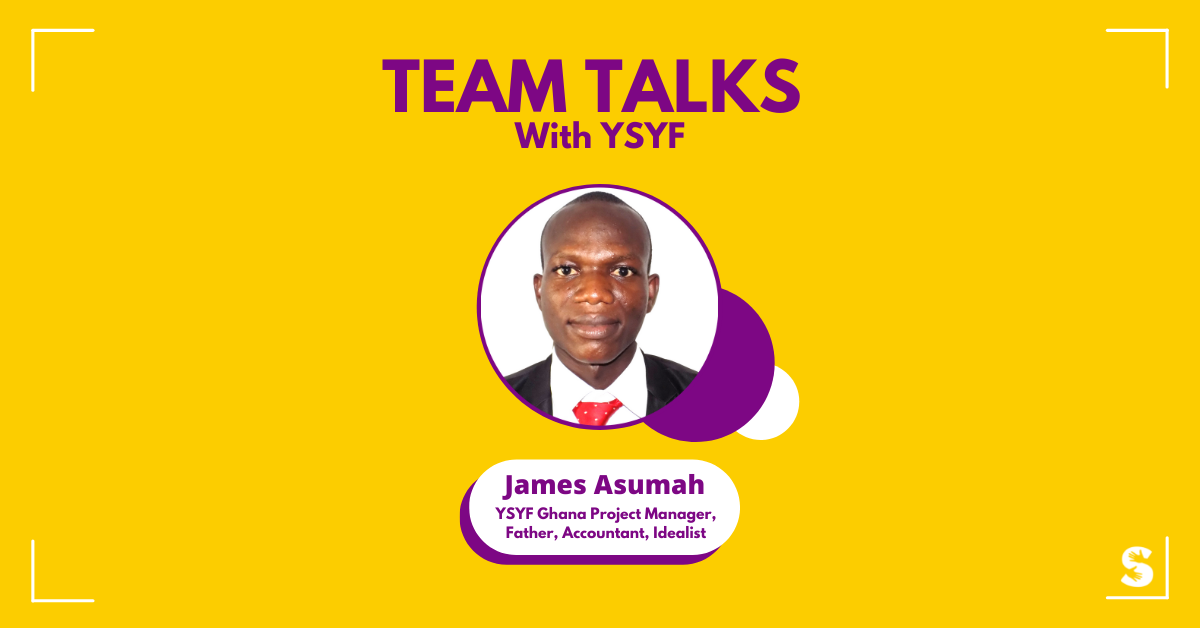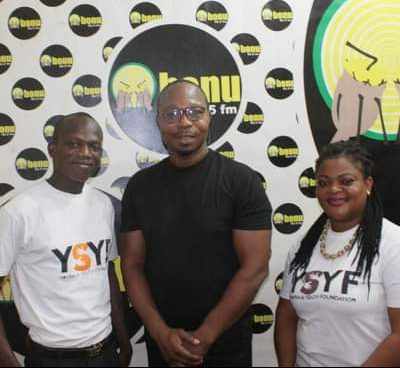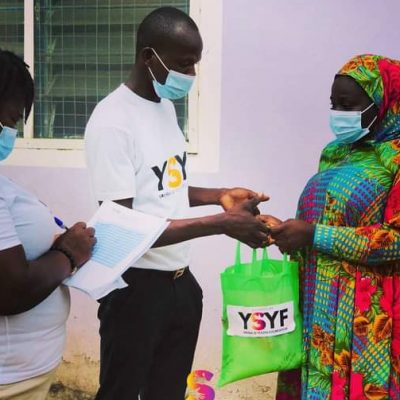


The “Yayra-Si” in Yayra-Si Youth Foundation translates to “Gifted Hands” in Ewe, the local language in Doryumu, Eastern Ghana where the organization operates. YSYF’s name is largely derived from our founder, Esther Naa Ankrah’s, experience advocating vocational training for youth and women. Asumah met Naa at a session and was hooked on the idea of what kind of difference he might make as part of the YSYF team. That was nearly 18 months ago.
Crossing the border in search of a better life, be that a job, escaping conflict, or for any other number of reasons is a common tale told in the West African country of Ghana. Asumah was charged with educating local youth on the (albeit few) resources available to them, not to mention the dangers of illegal crossings as a previous means of youth empowerment.
From this experience he discovered that while the proactive measures of education may be effective for some, there may be a more fulfilling way to tackle the issue. Fast forward to YSYF.
In Asumah’s short time as Project Manager for YSYF, he’s worked with the Doryumu community on an impressive number of initiatives, leading education seminars and speaking on Obonu FM about precautions to take against COVID-19; assisting with the expansion of the local Doryumu health clinic; and he is currently spearheading the Banana Fiber Bag project (to name a few).

Accountant by trade, Asumah’s immediate success in leading the YSYF team is no accident. And the work doesn’t stop here.
Asumah has big ideas for YSYF. “In three years, all women in Doryumu [will be] participating in vocational training.” YSYF’s main focus is on women and girls. Asumah is concerned for “…young women who are forced into marriage because of financial trouble,” and wishes “for ladies to become their own selves, to become good parents”, and “not to rely on men.”
One obstacle to the realization of female independence is battling the epidemic of teenage pregnancy in Ghana, a top priority of YSYF. The organization seeks to help women and young people develop their knowledge, skills and reach their potential. Access to and the provision of contraception and information is a human right and this is top of mind for James as he continues to battle with the women of Doryumu to attain this basic standard.
One big idea led to the next, and soon we were discussing the country of Ghana and Asumah’s vision for its amelioration. Decolonization is quickly becoming 2021’s buzzword. When asked about what it means to Asumah in the context of YSYF and Doryumu he had a refreshing and unique take to share:
“There should be loan facilities for young people to start doing their own business, especially unemployed graduates in Ghana. [Foreign] countries can help to facilitate loans in support of Ghanaian youth to open businesses which will help to reduce high rates of unemployment, cyber crimes, teenage pregnancy, and illegal migration into developed countries to seek greener pastures.”
Indeed it is difficult for young people to access loans to start a business or to pursue higher education in many African countries. YSYF works hard to obtain money that funds its projects. This has been the main challenge for Asumah and the Banana Fiber Project.

Scholars and activists approach the reckoning of post-colonialism with social solutions, such as education reform and land-back campaigns, as they should. However, it can and should reach beyond the liberation of the mind and the ground we stand on. YSYF works within the former’s framework, while Asumah can approach these issues using his business savvy — a valuable asset to any team.
When Asumah is not at his home with his wife and child, working at D.L, a local hospital and fertility centre, or out in the community with YSYF (whew, that was a mouthful!), you can find him searching for the next great idea, reading or listening to music.
Find out more about the work Asumah does with YSYF on our website.
Writen By
Ben is a content creator for YSYF Canada. He is pursuing a Masters of African Studies and Swahili at the School of Oriental and African Studies in the U.K. Ben enjoys exploring how reflexivity is key to the deconstruction of Western notions of international development.